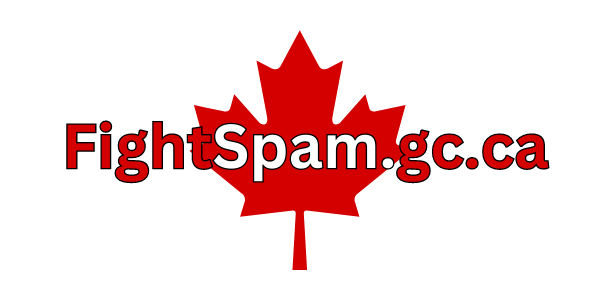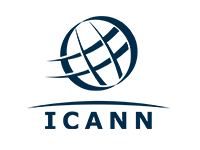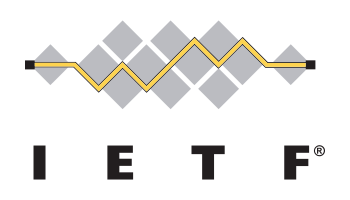2001 was a year fraught with legal wrangling in Washington State, Arizona, the U.S. congress, and the EU, false positives, ORBS operator Alan Brown being sued and threatened with arrest, and a spate of new email viruses.
January 2001
AOL filed suit versus Cyber Entertainment Networks, John Bennett and Joseph Elkind. The suit is aimed at holding website owners responsible for the actions of affiliates.
The Media3 Restraining Order against MAPS lapsed.
eBay changed user preferences from opt-out to opt-in. eBay eventually backs off. UPDATE: Some users have yet to forgive eBay.
R113, the Wireless Telephone Spam Protection Act introduced to U.S. congress by Rep. Rush Holt
Jupiter Research predicts 'topic-based' bulk filters that will allow some bulk email recipients want into the inbox at Hotmail & Yahoo!'
False positives of legitimate organizations such as peacefire.org, hosted on ISP Media3, but blocked by Hotmail's use of MAPS RBL come under scrutiny.
1,000,000 British Internet users at ISP Pipex taken offline by spam.
February 2001
eBay blocks users from seeing one-another's email addresses in an attempt to limit spam
The Anna Kournikova virus hits e-mail servers
"Spam costs users 10 Billion Euros per year" – European Commission
Telewest Blueyonder temporarily blacklisted by Hotmail, Yahoo
March 2001
Verizon Online Services, Inc. files lawsuit against Alan Ralsky. Ralsky did not learn from the experience, and is currently in prison, for spamming.
Genuity / CenterGate Research Group / UltraDNS founder Rodney Joffe threatens class-action suit against Phoenix-based mortgage company Acacai for mobile phone spam
The DMA gains support from the Bank of America, the financial and retail industry associations and key members of congress in their opposition to HR718 prior to a House Energy and Commerce Committee hearing. The bill passes unsullied, but is referred to the House judiciary committee.
The U.S. Securities and Exchange Commission files charges against five spammers including PinkMonkey.com for pump & dump spam runs. The company quickly settles, promising not to do it again.
Ohio considers a state anti-spam law
Verio blocks EFF founder John Gilmore's infamous toad.com open relay. Gilmore claims it infringes his right to free speech. Verio claims the block infringes on his right to free spam, and leaves it in place.
April 2001
AOL blocks Earthlink mail. Eventually, they kiss and make up, and sue spammers together.
"The average U.S. senator can expect as many as 55,000 e-mails a month, mostly "spam"" – Sen. Paul Wellstone, D-Minn
HR1071 the Anti-Spamming Act of 2001 tabled by Rep. Bob Goodlatte
Spam costs Brazilian Internet users $42,500,000 USD per month
JCPenney named 'worst corporate spammer' as the company ignores unsubscribe requests.
The FTC comes out in support of S630 – Senator Burns' anti-spam bill
May 2001
MAPS blocks an AT&T IP Range assigned to BeaverHome, sub-leased to spammers MonsterHut
The Sadmind worm spreads
U.S. Bill HR718 is deemed so watered down by a House judiciary committee as to be unsupportable by CAUCE. HR 1017 and S 630 are also deemed 'heavy handed' despite being opt-out, by the DMA. They too are watered now, and never passed.
'MAPS claims in suit with Black Ice Software dismissed' – Black Ice Software. 'That is not correct' – MAPS
DNSBL ORBS / Alan Brown sued for defamation by registrar Domainz, threatened with arrest warrant. ORBS stands accused of listing those sites that would not allow probes for open relays as being actual open relays. Xtra, Wellington, New Zealand ISP Actrix and accounting firm KPMG secure an injunction requiring ORBS to remove them from the blacklist. ORBS and its associated ISP Manawatu close suddenly. Brown leaves New Zealand, reputedly at first for the U.K. and eventually Holland. His whereabouts remain unknown, and an arrest warrant remains open in New Zealand.
Paul Cummins reopens ORBS in the UK. "Alan Brown and I are in dispute, he is saying I'm not to use the name ORBS. I'm saying get stuffed." – Paul Cummins
June 2001
MAPS begins to requires subscription-only access their RBL and other DNSBL Services, halting updates to their free services.
The Washington state Supreme Court upholds the state's anti-spam law
Brightmail spots 880,000 unique spam runs in June 2001
Motorola has files spam suit against Paging America
Kelly Thompson of MAPS admits to having been referred to as an "Uppity Chick" by spammers, in print media. Kelly's last name is now Molloy, she is the Manager of Ironport's SpamCop, and happily, she is still uppity.
July 2001
Japanese telecom company NTT DoCoMo spends $217,000,000 USD to block mobile spam
The Sircam worm is released. It makes a media splash. The Code Red worm is released
British MEP (and former east-enders star) Michael Cashman sucessfully scraps opt-in as a pernmission regime in the EU.
August 2001
MAPS pulls Harris Interactive IPs from the Realtime Blackhole List DNSBL
Code Red II begins aggressively spreading onto Microsoft systems, primarily in China.
DMA admits e-MPS is a failure with only 75,000 addresses registered for the service.
The Nimda worm is released, exploiting vulns left by Code Red and Sadmind. Viruses become the new spam-=sending platform, far outpacing open relays, most of which are closed, or blocked by DNSBLs.
'8% of all email spam' declares Brightmail
September 2001
The EU Parliament rejects spam laws, deciding to let individual member countries to determine their own anti-spam laws
September 13, 2001 – Spammers hit an all-time low. The first spams exploiting terrorist attacks of 9/11 are spotted, conning donations to fake victim-support charities.
October 2001
The Klez worm is first identified
Verizon settles lawsuit against mortgage spammer Acacia. Rodney Joffe's suit continues.
The Washington State law upheld as constitutional, the case against Jason Heckel proceeds.
November 2001
26% of all spam spotted by Trend Micro deemed 'non-English'.
December 2001
Peacefire.org's Bennett Haselton wins in Washington State small claims court against spammers.
December 24: The DMA's Bob Wietzen infamously suggests that if people were merely emailed $1 coupon for Tide, they would like spam. Ho, ho, ho. Consumers disagree. Vehemently.

















